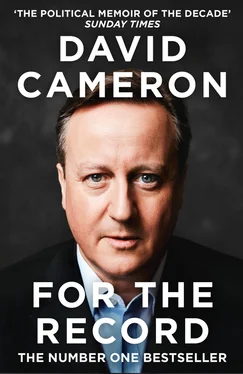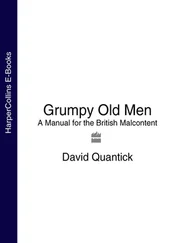The story of the end of Britain’s membership of the ERM is simply told. Following reunification, the German economy required high interest rates. Following the Lawson boom, the United Kingdom economy was in recession and required low interest rates. It was Germany that drove the European economy, and the mighty Bundesbank had a critical say in the ERM. Naturally, they prioritised German domestic policy. In the end the ERM could not contain this fundamental structural imbalance. That, above all, is what lay behind Britain’s exit.
But the ERM wasn’t just a story about Britain’s economic circumstances. It became an essential proxy in the Conservative war over the burgeoning European Union. Pro-Europeans made the argument then – and some still do now – that Britain joined at the wrong time and at the wrong rate, and if only different decisions had been made,the ERM might have worked. They also argue that leaving it so dramatically was unnecessary, that there was some middle way by which Britain could have been part of a realignment of Europe’s currencies, thus avoiding the humiliation of either a very public devaluation of the pound, or the exit that eventually took place. Some anti-Europeans claimed then – and still claim now – that the ERM actually caused the British recession, and was therefore responsible for all the pain it would cause in terms of job losses and house repossessions.
Both these views are, in my view, wrong.
The pro-Europeans miss the real point. Of course it might have been better if Britain had joined the ERM at a different time or at a lower rate, but in the end what did so much damage to the British economy was not the precise exchange rate, but the high interest rates, and therefore high mortgage rates, required by the ERM because of what was happening in Germany. No country ever managed for any sustained period to have interest rates below those prevailing in Germany. So even if we had joined at a lower exchange rate, those high interest rates would still have been necessary.
The argument that a ‘middle way’, with a more general currency realignment, was possible simply doesn’t stand up to scrutiny. All that was effectively on offer was a substantial British devaluation. Economists will continue to argue about whether that could have prevented our forced exit from the ERM. I would simply point out that several other countries had devalued more than once. The problem was interest rates.
The anti-European argument was equally bogus. The ERM did not cause the recession in Britain. It was caused by a rise in inflation at the end of Lawson’s period as chancellor, and the need to raise interest rates to bring it under control. It is true that the ERM resulted in high interest rates for longer than was necessary, but most economists agree that that was for a matter of months, not years. The ERM made the recession longer and deeper; it didn’t cause it in the first place.
The clear conclusion from all this was that fixed exchange rate systems can put huge pressures on the economies of different countries when their economies have different needs. The real lesson was that what was true for the ERM would be doubly true for a European single currency. It would be the ERM without an emergency exit route. My mantra became ‘We cannot join the single currency, because it requires a single interest rate, and sometimes that will not suit us.’
The truth turned out to be even worse. During the Eurozone crisis, effective interest rates in the struggling economies like Spain, Greece and Portugal were far higher than in Germany because, in spite of the lack of a formal exit route from the euro, markets still thought departure was possible, and demanded a premium for funding governments, in the form of much higher rates in the most stricken countries.
William Hague’s phrase describing the euro as a ‘burning building with no exits’ would prove doubly prescient.
By the time of the 1997 election I broke with the official policy that we would ‘wait and see’ on the euro, and joined the many who took a stronger position. My time in the Treasury had made me a Eurorealist, or a Eurosceptic. That did not, however, mean being anti-European. Norman Lamont and I drafted a pamphlet, ‘Europe: A Community not a Superstate’, to explain the consequences of what had happened, and the broader lessons for Britain’s European policy. Membership of the EU was necessary for trade and cooperation, but Britain had never welcomed, and would never welcome, the political aspects of the Union. We wrote: ‘No one would die for the European Union.’ No. 10 asked us to take it out. We kept it in.
By this time Norman was in deep trouble. And politicians in trouble need everything to go right for them. They cannot afford any slip-ups, whether self-imposed or externally generated. Unfortunately, the campaign to save Norman’s ministerial career got off to a bad start at the party conference in October.
We had spent too long crafting our pamphlet, and not enough time on his crucial conference speech. Getting the balance right, between a degree of contrition about the past and excitement about a future in which we could cut interest rates and generate growth, was a big challenge, which we failed. While the speech’s reception in the hall seemed all right, the reaction of even quite friendly colleagues was that it was ‘workmanlike’.
Whenever I’ve heard that word since to describe a performance, I know that what’s really meant is ‘bad’. And there’s a rule with these things: if something is seen as quite bad on day one, it’s a disaster on day two, and a career-shortening catastrophe by the end of the week.
The next task for Norman was to formulate an economic framework that would deliver the recovery the British economy so badly needed. Here he was in his element. Because he had seen that our ERM membership might well fail, he was ready to put a new policy in place. A credible domestic monetary policy to support the economy and deliver stable inflation. A tough, long-term fiscal policy to get the budget deficit under control. And supply-side reform to make our economy competitive.
This was pretty much the same medicine my government prescribed twenty years later. It worked well both times. But the right strategy needs the right implementation plan. And that is where we went wrong in 1992.
When you have to take lots of difficult and potentially unpopular decisions – including raising taxes – the trick is to separate those that are painful but deliverable from those that are potentially explosive. Step forward the proposal to put VAT on domestic heating bills. This was a mistake; and in many ways it was my mistake. We took the view then, just as we would in 2010, that we could not fairly and credibly reduce the budget deficit by cutting spending alone. Some tax increases would be needed. I looked carefully at all of the options, and came to the view that some of the zero rates on VAT were ripe for change. Energy prices were low, environmental concerns were growing, and we could protect the vulnerable from price increases through the benefits system.
Not for the last time in my political career, I had failed to spot the essential political equation: rational case versus emotional argument equals political disaster. And it was a disaster. We were defeated in the Commons, and had to revert to the much simpler (and less politically toxic) move of a small across-the-board increase in VAT. That taught me a lesson for the future – but it was another nail in Norman’s coffin.
Meanwhile, the economic medicine was working. Cheap money, fiscal discipline and competitiveness ushered in a period of growth that would continue throughout the decade.
And so yet another lesson was learned: while, all things being equal, reductions in public spending can have an effect on the overall level of demand in an economy, in practice other things are not equal. Controlling public spending, in an open economy like the UK, helps to lower the exchange rate and support exports, and even more importantly it frees up monetary policy to support the economy.
Читать дальше












